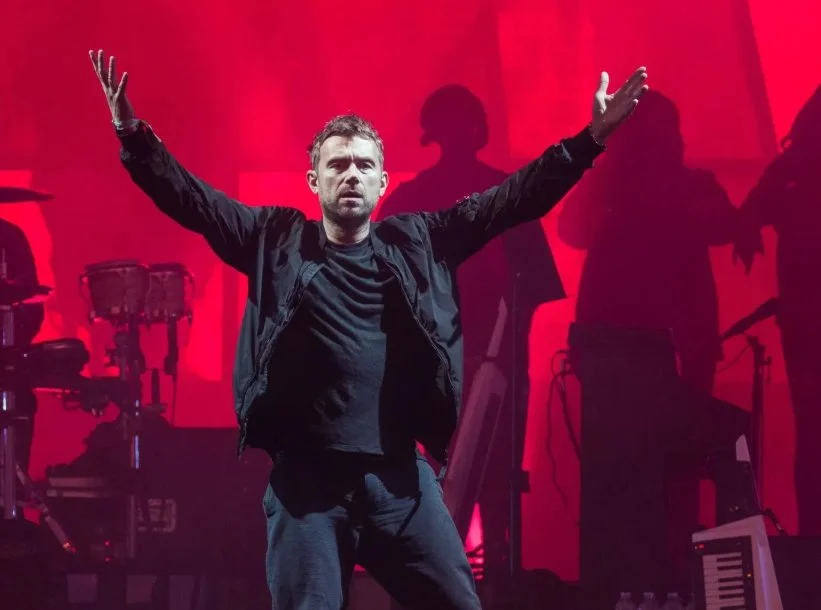Damon Albarn: Transcending Politics
Damon Albarn, frontman of Blur, co-creator of Gorillaz and founder of the multicultural collective Africa Express, has long used music as a force for unity and taking a stand.
Africa Express, Albarn’s genre-defying collective just released Bahidorá—a 21-track album recorded in Mexico with 31 artists. Despite its Latin influences, the project stays true to the collective’s mission: dismantling barriers in music. In a recent interview for “The Times” Albarn explains-
"We formed Africa Express to break down the citadel of world music and make everything more human and less exotic, I want to stand equally with other cultures in a united reaction to populism and militarism." The album, recorded in just two days at the Bahidorá festival, embodies spontaneity and collaboration. Mexican artist Luisa Almaguer, whose soulful vocals shine on Hacernos Así, describes the process as "a musical orgy." "Being collaborative pushes you," she says. "I’m seeing the world for the first time." For South African artist Moonchild Sanelly, the project offers liberation from commercial constraints: "You tap out of making radio hooks. It’s freedom—just letting the vibes vibe."
Albarn’s political engagement is no secret. In 2015, he critiqued Tony Blair’s "dark arts" within minutes of meeting; later, he heckled Michael Gove over Brexit. Today, his focus is on Palestine, where he sees cultural erasure as central to the conflict. "Part of the huge issue of Palestine is the way their identity is being eroded so brutally," he says. "Africa Express could go there—not for politics, but for culture. I’d go to Israel too, to bring people together. Same for Russia and Ukraine."
His career has always balanced introspection and rebellion. Blur’s Parklife (1994) captured British ennui with anthems like "Girls & Boys," while Gorillaz became a genre-fluid playground. "Music is about creating moments that feel alive, chaotic, and true," he reflects. Whether through Blur’s wit, Gorillaz’s innovation, or Africa Express’s solidarity, Albarn’s work remains rooted in a simple ethos: "Working with musicians from different cultures is like learning a new language. It opens your eyes to things you’d never imagine."
From the blues to "We Shall Overcome," from anti-war folk to punk, hip-hop, and techno, music has always been intertwined with resistance. While not every song carries a political message and not every dancefloor demands activism. Genres like house and techno cannot be divorced from their roots in marginalized communities. Today, artists across genres amplify struggles for justice, from Kendrick Lamar’s lyrical reckonings with racial inequality to Massive Attack, Kneecap, and Fontaine DC’s solidarity with Palestine, Beyoncé’s celebration of queer Black joy, and Olivia Rodrigo’s vocal advocacy for Palestine as well. Festivals like Glastonbury and Sonar have become platforms for protest, even as backlash and "cancel culture" push some artists toward silence.
Yet beyond trends and algorithms, music’s power endures in its primal ability to unite. Protesters still sing in the streets; crowds still sway to shared rhythms. In a fractured world, Damon Albarn’s work reminds us that music can be both a mirror to society’s wounds and a bridge toward healing. As he once said: "Creativity is about finding the magic in the moment." And sometimes, that magic becomes a movement.
Cover photo Rmv/REX/Shutterstock



